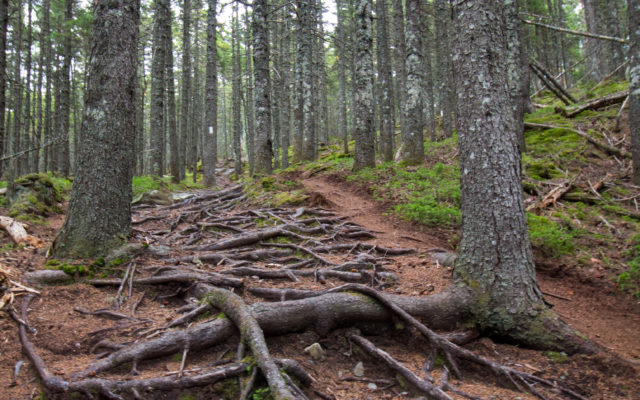
Hikers advised to stay off Appalachian Trail due to coronavirus
The Appalachian Trail Conservancy is asking all hikers to postpone any hikes on the Appalachian Trail until the risks of spreading COVID-19 to others has reduced significantly.
The statement was issued on March 23 after multiple sections of the 2,193-mile footpath, which spans from Georgia to Maine, experienced large crowds this past weekend.
“We really didn’t anticipate being inundated with day hikers,” said conservancy president and CEO Sandra Marra. “It started building last week and built into a crescendo last weekend. Communities [along the trail] were literally calling us saying we feel overrun and parking lots are overflowing. And we weren’t alone in that. Parks across the country were just blown away.”
In a letter to the hiking community on March 23, Marra wrote: “In a time when social distancing is necessary to minimize the spread and contraction of a dangerous virus, many have escaped to nature seeking isolation and unpopulated spaces. On the Appalachian Trail, however, what they’ve found are trailhead parking lots exceeding their maximum capacities, shelters full of overnight hikers, day hikers using picnic tables and privies, and group trips continuing as planned. Hiking the A.T. has become, in other words, the opposite of social distancing.”
In her letter, Marra pointed out that hikers could potentially spread COVID-19 by using the same picnic tables, shelters and privies, or sharing maps or food. She also called attention to the risk the coronavirus poses to rural communities along the A.T. where many hikers access the trail.
All conservancy staff and volunteers have been recalled from the trail, which means they are no longer maintaining the footpath, trailheads, shelters and privies. Marra is concerned that these resources could be heavily — if not permanently — impacted by increased visitor use.
Though the conservancy is advising people not to hike on the A.T. at this time, the organization does not have the authority to close the trail, which is a part of the National Park System.
Founded in 1925, the Appalachian Trail Conservancy oversees the management and maintenance of the entire trail, working with a vast network of volunteers and clubs, including the Maine Appalachian Trail Club.
“[This situation] really exposes just how complicated management of the Appalachian Trail is,” Marra said. “The only [entity] with the absolute authority to close the trail itself is the National Park Service.”
This is already happening, in bits and pieces, Marra pointed out.
Large sections of the Appalachian Trail travel through national parks that have recently closed areas and facilities due to the coronavirus. For example, the majority of Smoky Mountains National Park in North Carolina and Tennessee closed today, as did all A.T. shelters in Shenandoah National Park in Virginia. In addition, all shelters and camping sites on the A.T. in Maryland and New Jersey have been closed.
Each year, the A.T. sees more than 3 million visitors. In addition, an annual 3,000 to 4,000 hikers attempt to “thru-hike” the trail, traveling all 2,193 miles of the footpath in a single calendar year. Many of these long-distance hikers start their journey in early spring. Anticipating this, the conservancy made an announcement on March 17 urging thru-hikers and other long-distance hikers to postpone their A. T. hike due to COVID-19. The new announcement extends the request to day hikers as well.
“It’s hard enough to tell people not to go to the [Appalachian] Trail, period, but for many of these long-distance hikers, in many cases, they’ve closed their apartments, sold their cars, quit their jobs — people have been planning for multiple years to do this hike,” Marra said.
“I just want to be clear that we’re making these decisions with an abundance of information and consideration and voices,” she added.
Social distancing is nearly impossible when thru-hiking the A.T., Marra said. Along the trail, hikers often sleep in the close confines of lean-tos, hostels and tents. They share privies and food. They rely on shuttle services to reach towns and must frequently visit stores or post offices to restock on food and gear. Plus, it’s challenging to practice good hygiene while hiking day in and day out.
For these reasons, outbreaks of norovirus — a stomach bug — are common along the A.T., Marra said. The conservancy is concerned that COVID-19 could similarly spread throughout the thru-hiker community.
“The ATC does not want to do too little, too late,” Marra wrote in the March 23 letter to the hiking community. “We cannot close the trail. We cannot physically bar access to trailheads or connecting trails. We can and do, however, urge everyone to please stay away from the Appalachian Trail until further notice.”
To read the full letter and find more information on COVID-19’s effects on the A.T., visit appalachiantrail.org/covid-19.